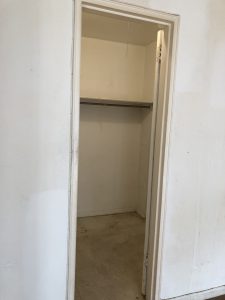When we don’t allow ourselves to face the reality that more space does not mean that we need to hold onto more possessions/papers/stuff, we can end up drowning in it. Here’s how to keep just what we need for a happier life and a happier outcome for the loved ones you will one day leave behind.
While I have addressed this subject in the past, I have developed deeper perspectives after learning about the Japanese and Swedish points of view regarding extraneous “stuff.”
In Japan, decluttering is tied to the idea that “your memories live in your heart.” You don’t need to cling to possessions to cherish those memories.
In Sweden, there is a phrase which essentially means “death cleaning.” This is the concept of decluttering in order to leave behind a tidy, manageable environment for your heirs.
In America, however, our approach to decluttering isn’t quite so philosophical. It might be summed up with the phrases: “Oh my, what a terrible mess!” or perhaps “I am moving, but do I really need to pay a mover to pack all this?” We throw up our hands and have no idea how to begin.
That’s why I’m here! Recently, I was called in on two separate assignments that each had a common thread: clutter. One party, who had passed, had refused to relinquish control to anyone who might have helped her declutter. As a result, her environment became so crowded that it could not be dusted, vacuumed, or cleaned. It took six days for us to dig out important documents, valuable jewelry, sterling, and so on. We had to remove 1 ½ truckloads of trash, which was an additional cost for the woman’s heirs.
Here is what her home looked like before we started our work:
And here is the same home after we cleaned it out:
The other party was moving from a very large home, which was sparsely furnished and well-organized, to one that was half the size. The very large home appeared to be clutter-free on the surface, but held an unpleasant surprise. Secreted away were years of papers and files that should have been disposed of long ago, enough seasonal decorations for multiple homes, dozens of spare light bulbs, and other paraphernalia.
This move was not a surprise. There had been ample time (at least a year) to go through all of the contents. However, like most of my clients, the family had procrastinated. As a result, they became more stressed, more pressed for time, and ended up paying more money than they needed to.
There are five key questions you should consider asking yourself when it comes to decluttering successfully. Follow these guidelines before you become engulfed in a teetering stack of outdated tax records, knitting magazines, and bric-a-brac!
1. Who Has to Deal With What I Leave Behind?
Who gets the silver? Who gets the vacuum cleaner? What should I throw out? These are all questions you need to address. Try to put yourself in the shoes of your adult children. A family member might be upset if you didn’t leave clear instructions, and arguments can even ensue. Make choices and record them clearly in your will. Verbal promises or labels stuck under or behind items are not enough. Even if you are only 25 years old, remember that one day someone will need to deal with your stuff.
2. How Do I Get Started?
Start by addressing a category that does not have any emotional ties; for example, old electronics, lampshades, office supplies, paper, linen, and items that are clearly broken or obsolete.
Most of us want to live in a neat environment. But many people wait until a life change to precipitate a sudden, massive desire to declutter: an illness, a child going off to college, moving. In such a situation, you’ll feel harried and under the gun. Plan ahead and get started now.
Questions you’ll need to ask yourself:
• Does it have sentimental value?
• Does it belong in the trash?
• Can someone else use it?
Just get it out of your home! As you make progress and reveal another empty shelf or drawer, you’ll be encouraged to continue.
There are exceptions. For example, if you know you have some important papers to sort before a move but just haven’t found the time yet, put them all in a box and mark it IMPORTANT so you know to go through it at a later time. But don’t carry this too far. One client of mine had kept decades of papers, including 15 years of medical records and brokerage statements in giant 3-ring binders. The documents had to be shredded and the scraps were enough to fill an entire truck! Keep only what you need. For example, when I file away the backup documentation for my yearly tax returns, I place them in a new expandable folder and shred the records that are 8 years old. One in, one out. The same goes for a new blouse that’s replacing a similar blouse that’s outdated, faded, or stained.
3. Does Anyone Want This Stuff?
Go ahead and ask them! Most of the time, they don’t. Prior to a move, I asked my daughter what she wanted. Silver? China? Crystal glasses? Her answer was a definitive “No, no, no.” She took a couple of pieces of silver and that was all. I was then forced to deal with a lot of things I no longer wanted or needed. Unfortunately, your emotional attachment to something doesn’t make it important to anyone else.
However, if you have unwanted items that are still in good condition and useful, please donate them or give them to a consignment shop.
4. How Do I Find the Time?
Too much time on your hands makes you complacent. When you have a surplus of free time, you get nothing done. Set manageable goals. “By Tuesday, I’ll clean out this corner. By next week, I’ll have three boxes ready for donation.” It helps to give yourself a deadline. Make an appointment with a charity to pick up your donation in the next two weeks. Mark it boldly on your calendar. You’ll know they are coming and it will give you the incentive to bag and box your giveaways.
5. Why Do I Keep Losing Steam?
Once you make a little progress, you often lose steam. This is when it helps to hire a professional. If your budget doesn’t allow for a pro, find a friend or family member to give you some tough love. The pro or the friend won’t have the same emotional attachments that you do, and will bring with them the practical, commonsense attitude that you need—and will be able to resist your pleas to save that old stack of National Geographic magazines. If you are not physically capable of lifting a box or climbing a ladder, you may also need outside help.
If you suffer from cluttering or hoarding tendencies, a pro or a dispassionate friend can efficiently help you with the physical removal of large items and can very gently coax you along. They can even wrest a broken plate from your grasp and discard it for you! (Let’s face it, that plate is never getting repaired, nor will it ever grace a table again.) Hoarders have an even greater inability than the rest of us to relinquish control. A recent client had a home filled with piles of books, mounds of papers, and stacks of plastic boxes filled with unopened mail. It was difficult to navigate. The bed was covered with junk. There was an enormous walk-in closet, but one could not “walk in” whatsoever. The closet was filled with boxes, bags, and medical equipment. We found refund checks from the IRS and Medicare amongst the unopened mail. I could go on for pages, but I think you have the picture.
The bottom line: you should leave your home neat and orderly. Sometimes you may need to give up control to a professional, family member, or friend to get the job done. Make life easy for those who will live on after you are gone. Just as with a will, decluttering your home is not only a gift you can leave to loved ones, but also a gift you can give to yourself in the present. View the whole concept like the Swedes do, as “Death Cleaning.” It sounds sad, but it isn’t. It will help you have a happier life in a clutter-free home.
Do you or does someone you know suffer from a clutter problem? What challenges have you faced? Do you have any tricks and tips that have worked well? I’d love to hear from you.
Our next topic will be: “Do you know what you really own—and can you prove it if you need to?”
Best wishes,
Sharon
646-784-3073
www.360demenager.com
Subscribe to Receive My Newsletter:






Very good blog. Full of good stories and reasons to get motivated.